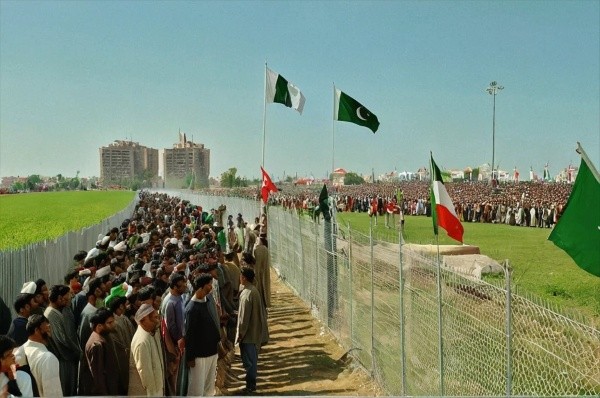Iran’s Plan to Strike Back Against the U.S.
Iran’s Military Preparations Following U.S. Attacks
Loading...

More than one million Afghans are likely to be expelled in the second phase of the controversial plan.
Pakistan is set to commence the second phase of its controversial plan to deport undocumented Afghan refugees, beginning Sunday. This move is expected to affect more than 800,000 Afghans, following the first phase in November 2023 that saw approximately 541,000 individuals forced to leave the country.
The Pakistani government, citing security concerns and economic struggles, has defended its decision to expel undocumented Afghan nationals. Before the initial repatriation phase, authorities estimated that nearly 4.4 million Afghan refugees resided in Pakistan, with about 1.73 million lacking proper documentation.
Under this policy, refugees face the choice of voluntary departure or risk arrest and deportation. The government's hardline stance comes in response to a significant increase in armed attacks across Pakistan, which officials attribute to groups and individuals based in Afghanistan. However, the Taliban government in Afghanistan has refuted these allegations.
The United Nations High Commissioner for Refugees (UNHCR) has expressed concern over the deportation plan. Philippa Candler, UNHCR's representative in Islamabad, urged Pakistan to consider the profiles of undocumented Afghans before expulsion, emphasizing that many are "in need of international protection."
"They're refugees. They're not involved in terrorist activities. They're just people who fled and who need protection," Candler stated. She suggested that if any Afghan nationals were involved in terrorist activities, "it should be dealt with separately."
Reports from refugee camps paint a grim picture of the situation. At the Khazana refugee camp in Peshawar, which houses about 1,300 Afghan families, refugees have appealed to the international community and the Pakistani government for more time to leave "in a dignified manner." There are complaints of night raids on houses and forced evictions, leaving many in dire circumstances.
"It's very difficult to leave after spending a lifetime in a country and then being forced out," noted media, reporting from the camp.
Pakistan's approach to refugee rights has come under scrutiny. The country is not a signatory to the 1951 UN convention protecting refugee rights and lacks domestic laws and procedures to determine the status of individuals seeking international protection within its borders.
Human rights organizations have raised alarms about the potential risks faced by returning refugees. Amnesty International has warned of the possibility of persecution for those forced to return to Afghanistan.
This deportation drive occurs against the backdrop of Afghanistan's ongoing humanitarian crisis following the Taliban's return to power in 2021. The mass return of refugees could further strain Afghanistan's resources and stability.
As Pakistan proceeds with this second phase of deportations, the international community watches closely. The situation highlights the complex challenges of managing long-term refugee populations and the delicate balance between national security concerns and humanitarian obligations.
The coming weeks are critical as hundreds of thousands of Afghans face an uncertain future, caught between the policies of their host country and the instability of their homeland. The international community may need to intervene to ensure the protection of vulnerable refugees and to support both Pakistan and Afghanistan in managing this large-scale population movement.
BMM - MBA
Iran’s Military Preparations Following U.S. Attacks
Troops remain in five strategic locations, raising fears of renewed tensions and long-term occupation.
Opposition forces have taken control of the capital after a significant offensive. Here is how it unravelled.
